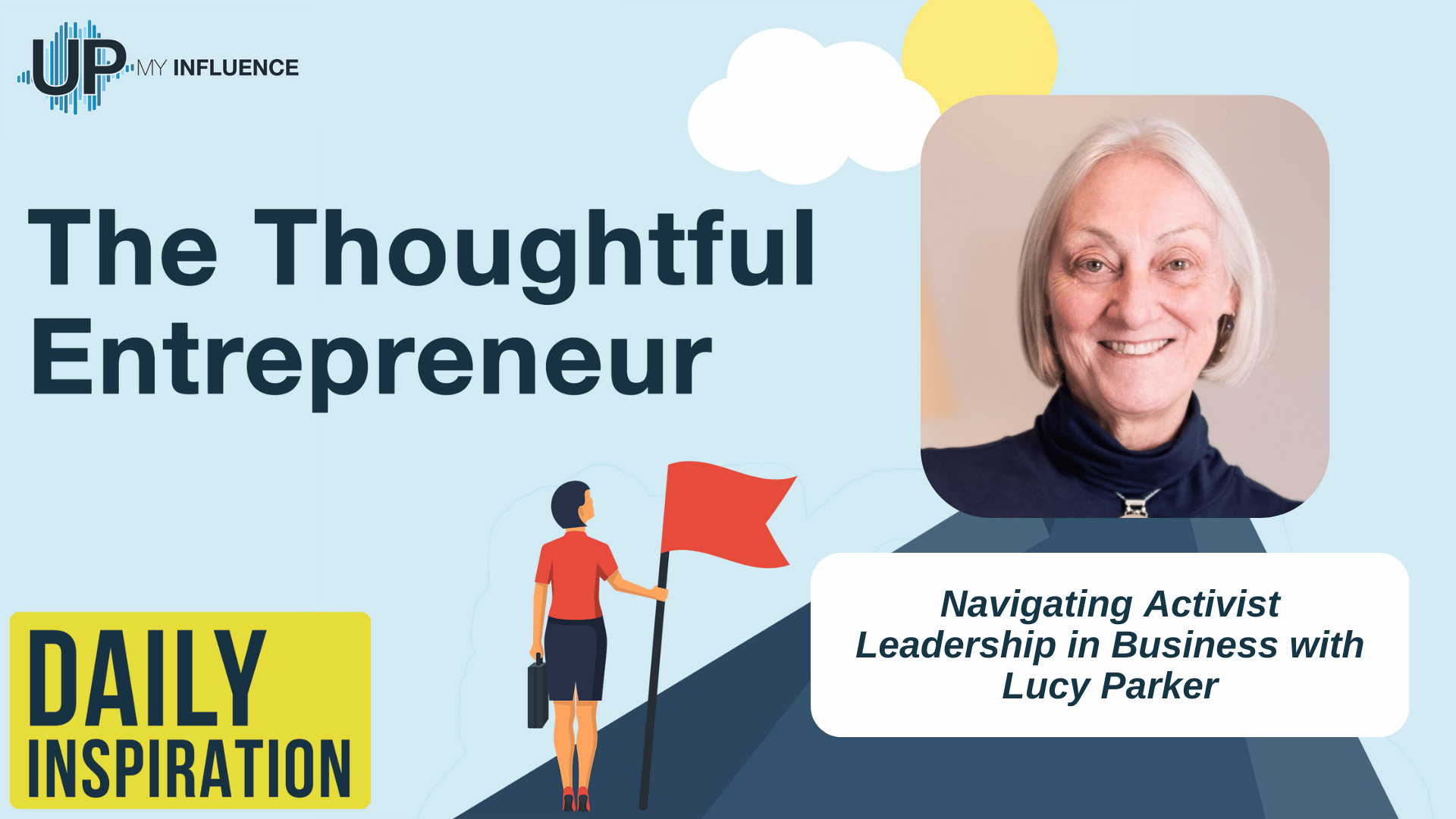THE THOUGHTFUL ENTREPRENEUR PODCAST

In this episode of the Thoughtful Entrepreneur, your host Josh Elledge speaks to a Corporate Advisor, Co-Author, and Senior Partner of Brunswick Group, Lucy Parker.
Lucy Parker, a pioneer in social value and sustainable business practices, co-authored “The Activist Leader: A New Mindset for Doing Business.” She explores the complex relationship between corporate leadership and social activism, highlighting how contemporary leaders can manage businesses conscientiously.
Lucy focused on the significant changes in business operations in response to societal challenges. She underscored the need for leaders to understand their company's influence on the world and actively ensure this impact is positive and significant.
As the founder of the Brunswick Group's social value initiatives, Lucy provided insights into how companies can incorporate sustainable practices into their main strategies. She cited examples of organizations that have effectively leveraged social value to bolster their brand and contribute positively to society.
Key Points from the Episode:
- Social value and sustainable business
- The Activist Leader: A New Mindset for Doing Business (book)
- The role of activism in leadership and business
- Strategies for integrating social value into business practices
- The impact of sustainable business on society and the environment
About Lucy Parker:
Lucy Parker is a distinguished corporate advisor and coach renowned for her leadership at the Brunswick Group, where she co-founded the firm’s practice on social value and sustainable business. Her work predominantly focuses on guiding global companies through complex societal challenges, particularly environmental, social, and governance (ESG) issues. With over two decades of experience across diverse sectors such as pharmaceuticals, engineering, retail, and telecoms, Lucy has been pivotal in shaping corporate strategies that address critical societal impacts. She regularly writes on the role of business in society and has co-authored two influential books with Jon Miller, Everybody’s Business, and The Activist Leader.
Before her tenure in corporate advisory, Lucy’s career began in journalism as a documentary maker at the BBC, where she produced content on social issues. Transitioning to a business context, she has effectively utilized her storytelling skills to enhance corporate communication with various stakeholders, including investors, employees, and governments. From 2008 to 2010, Lucy chaired the UK Prime Minister’s Taskforce for Talent and Enterprise under Gordon Brown, emphasizing the strategic importance of high-value skills for maintaining a competitive edge in the global economy.
About Brunswick Group:
Brunswick Group is a global advisory firm specializing in critical business issues, helping companies build and maintain trusted relationships with all their stakeholders. Known for its robust background in financial communications, Brunswick understands the intricate dynamics of how businesses operate. The firm emphasizes the importance of integrity, reflected in its commitment to diligence, openness, and accuracy in all dealings. This approach is essential not just for managing perceptions but for the effective overall functioning of a business.
Operating as a unified firm worldwide, Brunswick boasts a diverse team of highly skilled professionals from various backgrounds, ensuring high-caliber and experienced consultancy. No matter the complexity of the task or its geographic location, Brunswick is adept at assembling the right experts from across its network to address each client's specific needs. The firm’s overarching goal is to assist the world’s leading value-creating organizations play a more successful and constructive role in society.
Tweetable Moments:
02:15 – “If you're running a business today or you have a leadership role in a business today, you need to be looking at these issues very seriously and stepping into them on your own momentum. You own the change that needs to happen; don't have it forced out of you.”
Links Mentioned in this Episode:
Want to learn more? Check out Brunswick Group’s website at
https://www.brunswickgroup.com/
Check out Brunswick Group on LinkedIn at
https://www.linkedin.com/company/brunswick-group/
Check out Brunswick Group on Facebook at
https://www.facebook.com/brunswickgroupllp
Check out Brunswick Group on Twitter at
https://twitter.com/BrunswickGroup
Check out these two books Lucy Parker co-authored:
“Everybody's Business”
https://www.amazon.co.uk/Everybodys-Business-Jon-Miller/dp/1849546088
“The Activist Leader”
https://www.theactivistleader.online/
More from UpMyInfluence:
We are actively booking guests for our The Thoughtful Entrepreneur. Schedule HERE.
Are you a 6-figure consultant? I’ve got high-level intros for you. Learn more here.
What is your #1 Lead Generation BLOCKER? Take my free quiz here.
Want to learn more about all the podcasts managed by UpMyInfluence? Opt in here.


